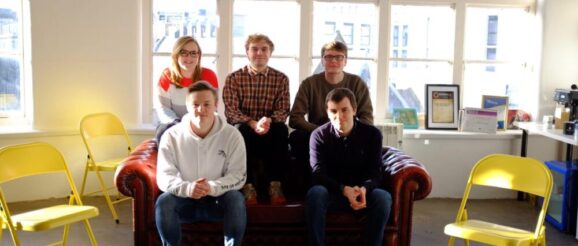Using Start-Up Ethos and Innovation to Support Clients

We talked to Dylan McKee, co-founder and CEO at Nebula Labs, about software development, and this is what he said about it.
First of all, how are you and your family doing in these COVID-19 times?
Dylan McKee: We’re all well, thank you, scattered across the country and abroad, so of course, looking forward to when we can finally get together again, as everyone is!
Tell us about you, your career, and how you founded Nebula Labs.
Dylan McKee: I was interested in computers and programming from an early age. When I was 13, I released my first iOS app, myAltitude, which had more than 1 million downloads worldwide, and spurred me on to develop more. While I was at school, I twice won a student scholarship to attend Apple’s prestigious Worldwide Developers Conference, and I also took part in an accelerator program, Ignite, as well as undertaking freelance work.
My ambition was always to have my own business, and together with a school friend Nic Flynn, we co-founded our software house Nebula Labs during our last year of university. We took part in Newcastle University’s Foundership program before moving into our own offices in Newcastle city center, where we now have a team of eight.
How does Nebula Labs innovate?
Dylan McKee: Nebula Labs specializes in developing mobile apps, web platforms, and tailored software solutions for start-ups, forward-thinking enterprises, and government organizations, helping solve real-world problems. Our work includes location-based and real-time apps, data-driven platforms, and artificial intelligence chatbots
Having a lot of experience with start-ups, including our own, we have kept this innovative and creative ethos and combine it with unique agility in our business processes and solutions, working closely with clients and collaborating with partners.
How does the coronavirus pandemic affect your business finances?
Dylan McKee: We’ve been fortunate in that we are able to be flexible and agile; working remotely and working with clients online rather than in person have all been possible due to the nature of our work. We have a variety of clients, too, mostly in sectors that haven’t been the hardest hit, so again, we feel lucky to have been able to keep in a good position financially. The pandemic has, of course, hit some sectors and businesses hard, and, understandably, potential opportunities for new projects in some areas are fewer than previously. We still have to pay rent and expenses on our office while it’s currently empty.
Did you have to make difficult choices regarding human resources, and what are the lessons learned?
Dylan McKee: Due to work continuing and our team being able to work remotely, we have been able to keep all of our staff members on, which I am so grateful for. We are a small and usually very sociable team, and have had to switch our nights ‘out’ and lunches to virtual ones, of course, which isn’t the same, but it is good to keep everyone seeing and chatting to each other in some way. It’s been a difficult year for everyone in different ways, and we’ve tried to keep each other motivated and positive.
How did your customer relationship management evolve? Do you use any specific tools to be efficient?
Dylan McKee: Like others, we have moved from in-person to online and virtual meetings and progress reporting, as well as making more use of tools like Zoom, we primarily use Hobspot.
Did you benefit from any government grants, and did that help keep your business afloat?
Dylan McKee: Yes, we received a Small Business Grant from Newcastle City Council, which helped towards paying office expenses.
Your final thoughts?
Dylan McKee: While it’s certainly been a challenging year, we’re delighted we’ve been able to support clients who have had to pivot their offer and how they deliver their services, and we’ve developed solutions to help their businesses continue. We work with a number in the Edtech sector, for example, such as global bridge, which has moved events and more of their services to an online platform and app. Before the pandemic, we won a contract to develop a smart ticketing app for local transport provider Nexus to use on the northeast Metro system. The increasing importance and need for contactless payments expediated that project delivery.
Looking to the future, I think more businesses will continue to deliver and develop more services online and virtually, and we will help bring innovative solutions to life that can help companies survive and thrive in the post-pandemic world too.
